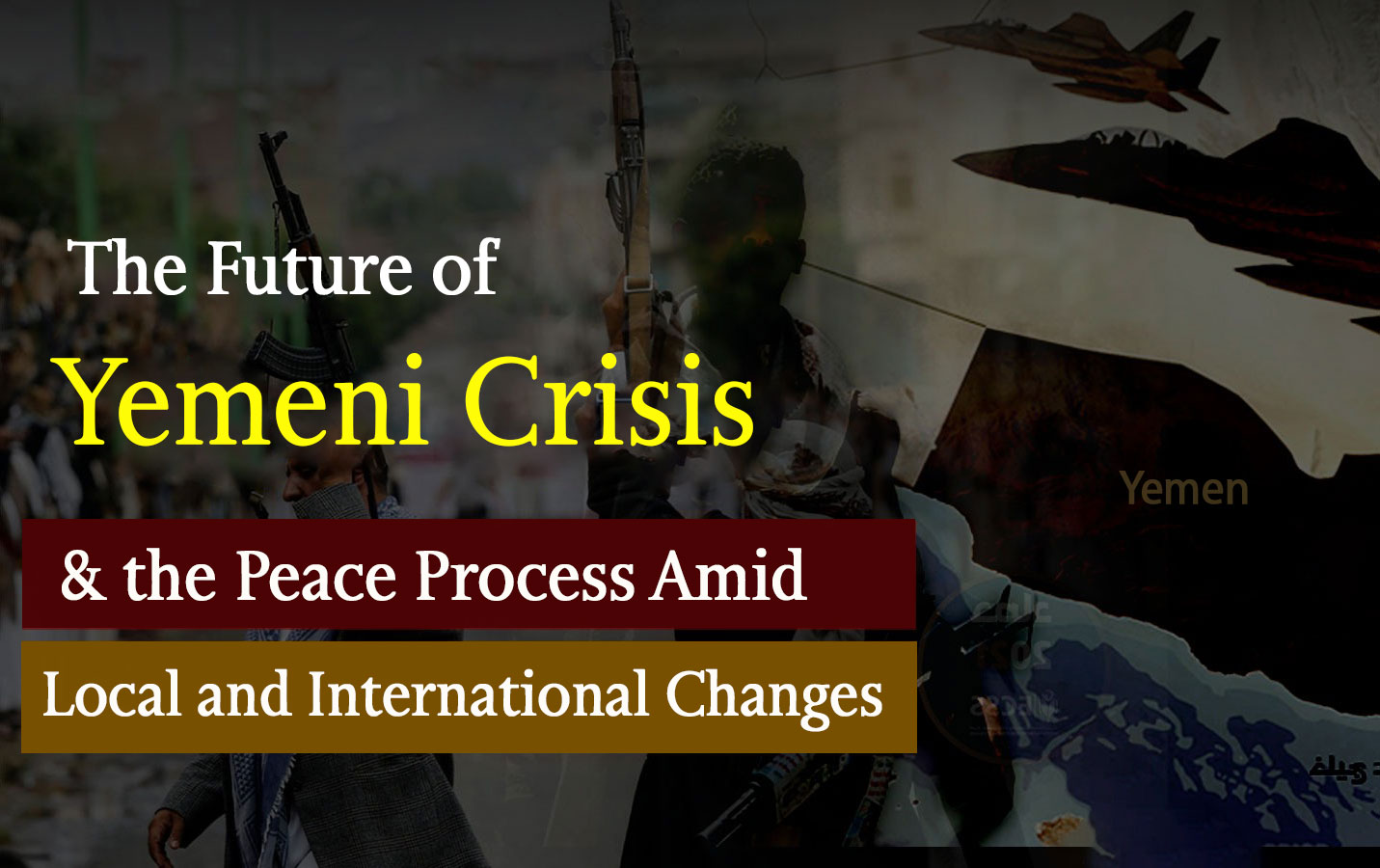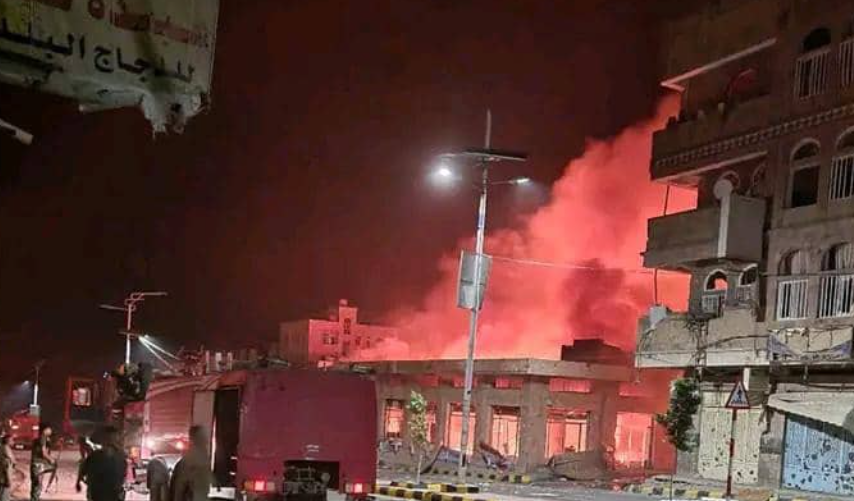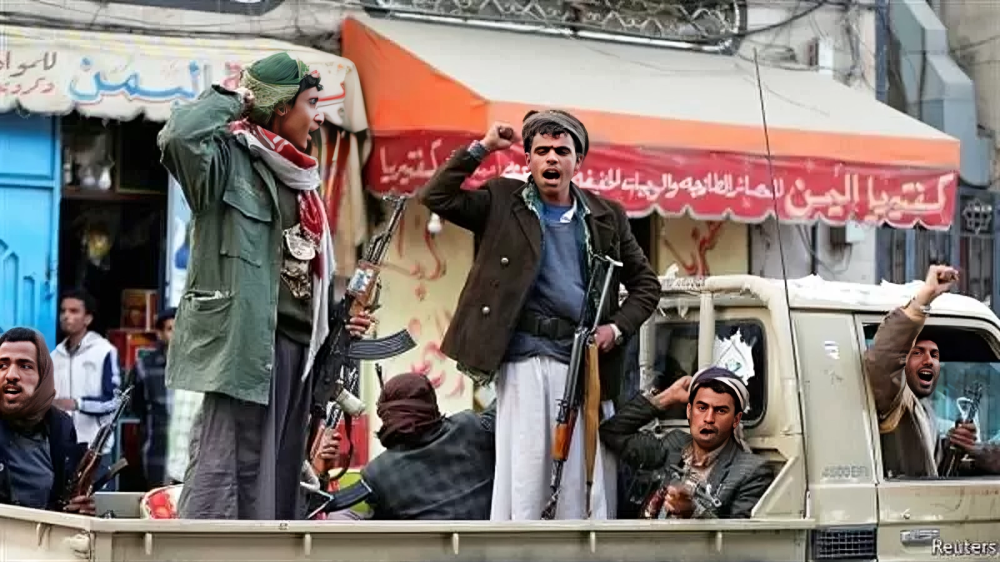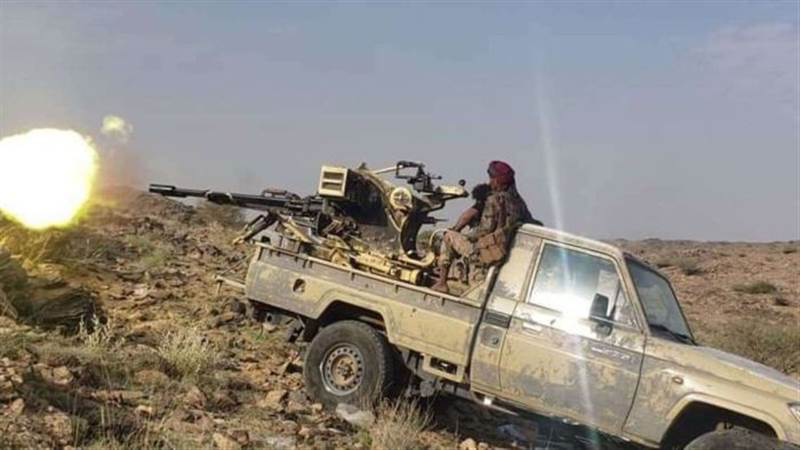
Barran Press - Nawaf AlHemyari
With the resurgence of regional and international efforts regarding the peace roadmap in Yemen, the impact of regional and international changes on the Yemeni crisis comes to the forefront. The question arises whether these changes can help end the decade-long war.
Internally, there is a push to unify ranks and end internal divisions that affect local parties and their connections with regional and international powers directly involved in the Yemeni file. How can internal rapprochement efforts influence the crisis?
In this article, politicians and researchers speak to "Barran Press" about the future of the Yemeni crisis and the peace process in light of these changes, including the upcoming new U.S. administration and ongoing events in the Middle East, such as Saudi-Iranian rapprochement.
Logical Connection
Feisal Al-Awadhi, Advisor to the Ministry of Information in the internationally recognized Yemeni government, believes there is a logical connection between the Yemeni crisis and regional and international changes. "This is natural as the Yemeni crisis is one of many files for the region and the world," he said.
Al-Awadhi told "Barran Press" that "the only notable change is Trump's victory in the U.S. presidential elections."
"Trump made many campaign promises, including solving the Yemeni problem. If he keeps his promises, he will work after taking office to find a solution or exert real pressure on the Houthi terrorist militia," he added.
Adel Dashila, a researcher at Columbia University's Middle East Research Center, does not believe Trump's victory will fundamentally affect the Yemeni file and the peace process. He told "Barran Press" that the upcoming U.S. administration will have significant alignment with the Saudi administration on how to handle the Yemeni crisis, whether through peace or war. Thus, the fate of peace in Yemen will depend on international decisions and reconciliations.
Former Minister of Legal Affairs Dr. Mohammed Al-Mikhlafi told "Barran Press" that achieving peace in Yemen requires first providing its conditions. These conditions include making peace a necessity for those who ignited the war and their external supporters and overcoming geopolitical obstacles that neither the Saudi-Iranian agreement nor a change in the U.S. administration can affect. According to Al-Mikhlafi, regional conflicts and the Red Sea conflict have intensified these obstacles, drawing in other countries like Russia and China.
Regional Rapprochement
Regarding the Saudi-Iranian rapprochement and its impact on peace in Yemen, Dashila believes it will play an important role in shaping the peace roadmap if there is a U.S.-Iranian dialogue and agreement on some steps.
Al-Awadhi sees Saudi-Iranian rapprochement as potentially having a significant impact on creating new outlines for resolving the Yemeni crisis. He noted that continued efforts to build dialogue bridges between Riyadh and Tehran could reduce tensions in Yemen. "If Riyadh succeeds in convincing Tehran to pressure the Houthis to seriously negotiate, it could create a more stable regional environment and open new opportunities for peace," he said.
On November 10, Saudi Chief of General Staff General Fayyad Al-Ruwaili visited Tehran, leading a high-level delegation in a first-of-its-kind visit to discuss bilateral and defense relations. The semi-official Iranian news agency Tasnim reported that the Saudi Chief of General Staff met his Iranian counterpart, discussing the development of defense diplomacy and expanding bilateral cooperation.
In December last year, Major General Bagheri held phone talks with Saudi Defense Minister Khalid bin Salman, discussing regional developments, enhancing defense cooperation between the armed forces of both countries, and important issues in the Islamic world, according to Iranian media.
In March of the same year, Tehran and Riyadh, mediated by China, agreed to restore relations after seven years of hostility that threatened stability and security in the Gulf region and fueled conflicts in the Middle East from Yemen to Syria.
Internal Alignment
Internally, former Minister Dr. Mohammed Al-Mikhlafi emphasized the need for Yemeni national forces and leaders to understand regional and international changes, move beyond fragmentation and political bickering, and start immediately formulating a unified national project within a single political entity based on legitimate frameworks. "Everyone must work through this entity, then integrate military units and security agencies to ensure the effectiveness, flexibility, and efficiency of sovereign state institutions, unifying all efforts towards liberation and reconstruction," he said.
Al-Awadhi, Advisor to the Minister of Information, stated that the Presidential Leadership Council has worked to unify internal ranks and create political rapprochements among all political forces under the legitimacy umbrella. He confirmed that the political leadership is moving forward in unifying efforts and consolidating ranks.
He added that parliamentary sessions will soon be held in Aden to unify the path and follow the steps to restore the republic, discuss the government's program, and the annual budget. The parliament will discuss government programs, including the Ministry of Defense's programs, with the top priority being to eliminate the Houthi coup and restore the state.
Dashila, however, doubts the success of these unification attempts due to the presence of local actors not represented in parliament, such as the Houthis and the Southern Transitional Council, who feel they have no representation in parliament.
Recently, Aden, the declared temporary capital of the country, witnessed the announcement of the National Coalition of Political Parties and Components opposing the Houthis, excluding the Southern Transitional Council, with ongoing efforts to convince it to join the coalition, alongside intensive moves to hold parliamentary sessions in Aden.
Economic File
Regarding the economic file and the ongoing conflict around it, Al-Mikhlafi said that addressing this file opened a window in the conflict wall after the recent agreement to reduce economic confrontation based on the roadmap from Saudi and Omani efforts. However, this agreement collapsed and failed after the Houthis reneged on their commitments, being a group outside national and international law.
Dashila believes the Houthis will not accept any economic settlement unless accompanied by a political agreement. The Houthis want both political and economic agreements to give them significant control in the political field, allowing them to control the economy in the future. Therefore, they work to thwart the economic file.
He added that the Houthis avoid economic agreements, especially currency unification, as it would not be in their favor and would end their project if all Yemeni parties reached an agreement. This will not happen as long as the Houthis remain obstinate and renege on all agreements. Thus, the prospects for a settlement in Yemen remain distant.
On July 23, the office of the UN Special Envoy to Yemen, Hans Grundberg, announced an agreement between the internationally recognized Yemeni government and the Houthi group, classified as a terrorist organization, on several measures to de-escalate the banking sector and Yemenia Airways.
The agreement includes canceling recent decisions and actions against banks from both sides, halting similar future decisions or actions, resuming Yemenia flights between Sana'a and Jordan, and operating flights to Cairo and India daily or as needed.
Scenarios
Regarding the future of the Yemeni crisis amid all these changes, Dashila pointed to three scenarios: military escalation, political settlement among all Yemeni parties, and maintaining the status quo. He believes the second scenario requires activating political rapprochement between Saudi Arabia, Iran, and even the UAE, but he rules out this scenario given regional projects.
Dashila favors the third scenario, which is maintaining the current situation.
Recently, the UN envoy to Yemen intensified separate meetings with Yemeni and international parties to resume negotiations to end the war and establish peace in the country.
On December 23, the UN announced that Yemeni parties had reached understandings to commit to a set of measures, including implementing a nationwide ceasefire, improving living conditions in Yemen, and preparing to resume an inclusive political process.
The roadmap and peace efforts in Yemen stalled due to Houthi attacks on commercial shipping vessels in the Red Sea, the Arabian Sea, and the Gulf of Aden since last November.





